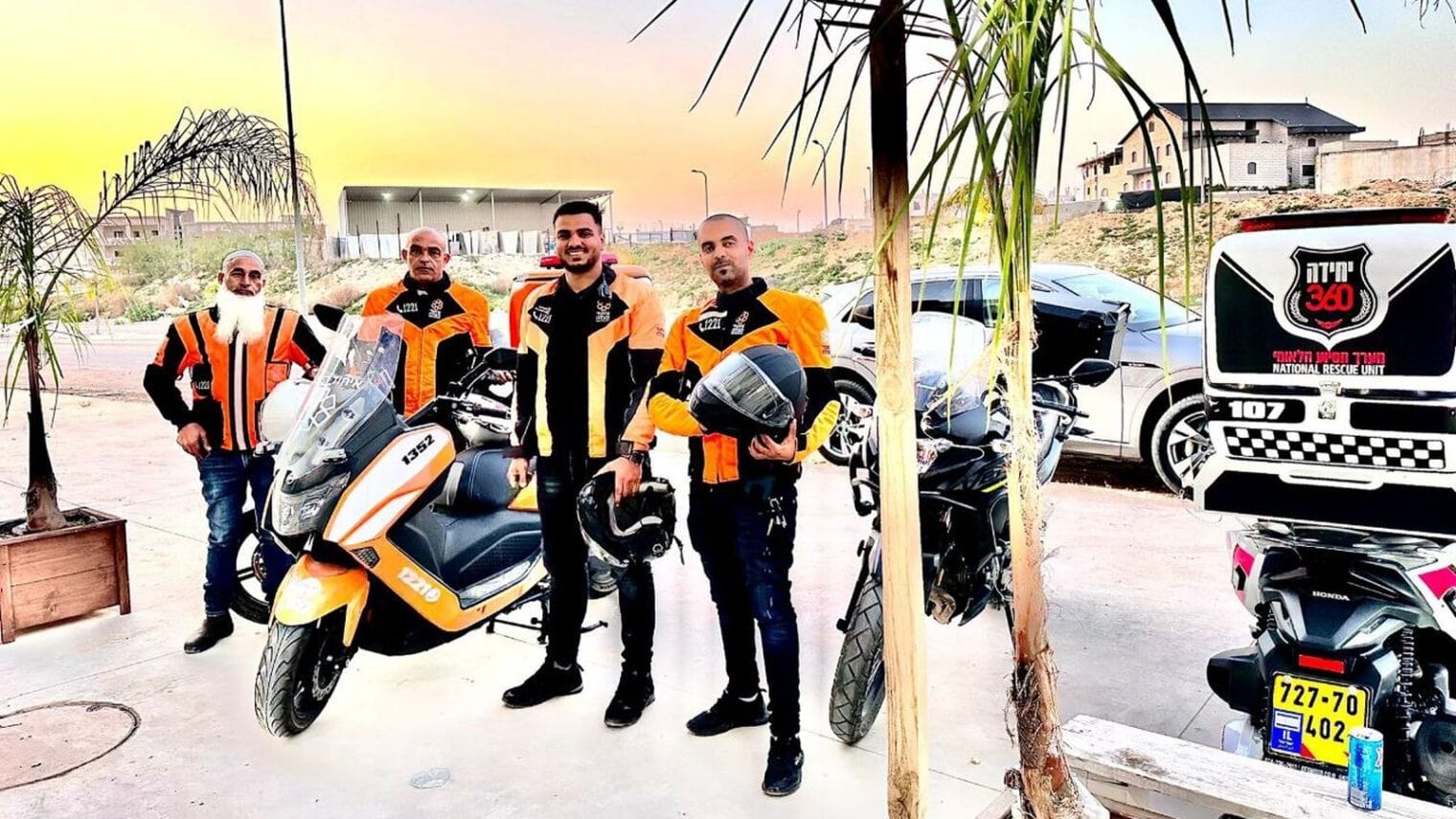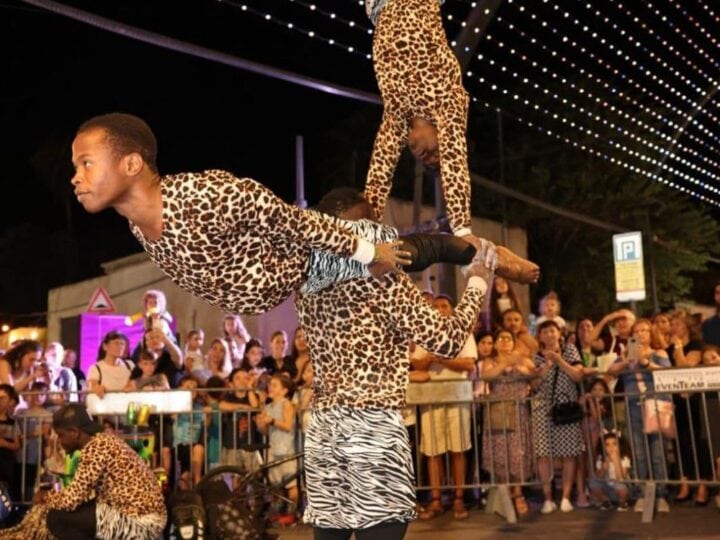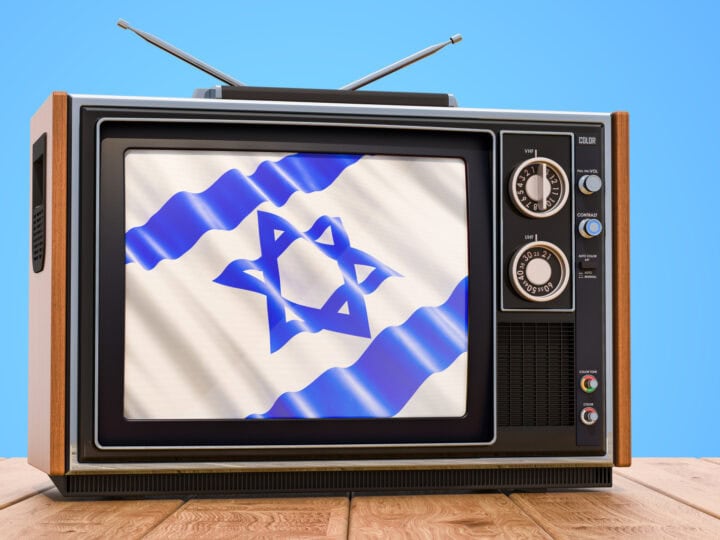A lot of discourse surrounding Israel’s war against Hamas centers on not allowing Jewish history to repeat itself. Although the discourse is completely justified, there are many non-Jewish communities in Israel that have been affected by the war just as much.
At least 19 Bedouin Israelis, both civilians and soldiers, have been killed since the start of the fighting, which began on October 7 with a barbaric Hamas onslaught on Israeli communities in southern Israel.
Bedouin paramedic Adam Alturi, who volunteers with the United Hatzalah emergency medical services organization, says the anxiety levels among community members are incredibly high.
Overlooked victims
“We get a lot of calls about panic attacks,” he tells ISRAEL21c.
The 27-year-old senior medic patrols the area of Rahat, the largest Bedouin city in Israel, and its surrounding areas, which includes seven Jewish villages. Alturi is one of 63 volunteers assigned to the area. “Each neighborhood has at least two to three volunteers,” he says.
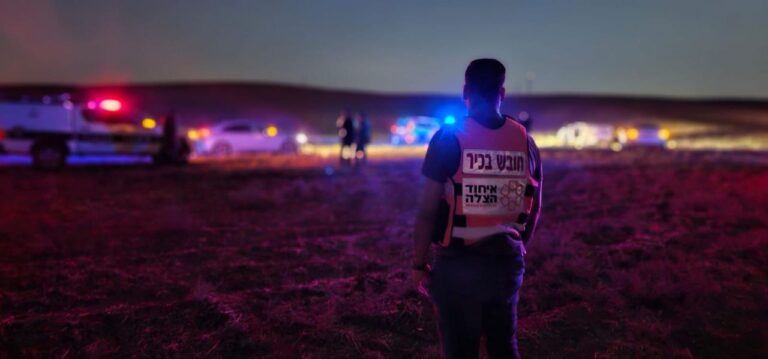
“Sometimes I stay for hours with the family, trying to calm them,” he says, adding that women and children are most likely to suffer from severe anxiety.
On the first day of the war, five children were killed in the Bedouin town of Hura in the Negev by a barrage of rockets from the Gaza Strip. Two women were killed in the same attack.
“We instruct the public on how to behave during an emergency or rocket alert sirens. To find a space as safe as possible and keep calm,” Alturi says, adding that there are barely any bomb shelters in the city.
The closest hospital to Rahat is Soroka Medical Center in Beersheva, which is about a 20- to 30-minute drive.
“Some residents are afraid to go to the hospital, and MDA [Magen David Adom] ambulances take too long [to arrive], so we come to them and try to help,” says Alturi, who spent years working with MDA. “We’re also constantly patrolling the city to show the residents that they are not alone.”
This is, in fact, why United Hatzalah was founded as a neighborhood-based EMS network. Voluntary first-responders living locally can reach those needing their help before an ambulance can get there.
Challenging before the war
Alturi is employed as a medic at an assisted living facility, and a part-time security officer in Rahat’s municipal patrol. He began volunteering with United Hatzalah three years ago, at the onset of another crisis — the pandemic.
But the father of three notes that Rahat was a challenging place even before the coronavirus or the current war, due to spiraling gun violence.
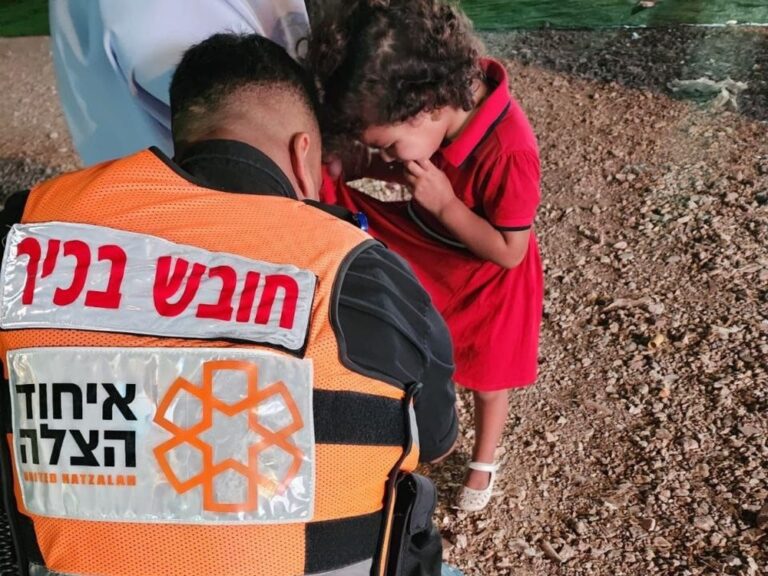
Shortly before our interview, he had to tend to two shooting victims, the result of a family dispute that turned violent. Both victims eventually passed away.
Thanks to local businesspeople in Rahat, the United Hatzalah team there also delivers food to people in need. With the start of the war, the project was expanded to bring food to those who are simply afraid of leaving their homes.
In the first days of the war, Alturi’s team delivered boxes of food to communities that had been directly affected by the Hamas attack.
All over the country
Aluri says that in times of war, volunteer organizations work in unison to support one another. They work with ZAKA and Unit 360 — both voluntary community emergency response organizations.
“The emergency services are overwhelmed, so we are helping one another all the time all over the country. We come all the way to the north when needed.”
Alturi’s team currently has only two ambulances and four motorcycles available. “Sometimes we get calls but there are no ambulances available, so I just take my own car.”
During peacetime, United Hatzalah requires at least 16 hours of volunteering per month. “Now, there are no hours,” he says.
“Yesterday I volunteered from 4pm to 3am. Sometimes the volunteers sleep at the station with their clothes on.”
The paramedic says the work he does with United Hatzalah lifts him up and gives him strength to carry on in these dark times.
To donate to United Hatzalah, click here.




